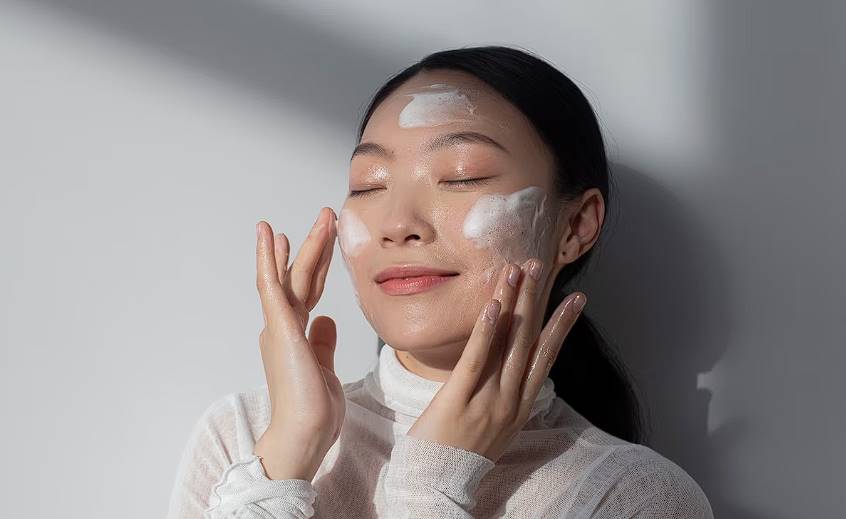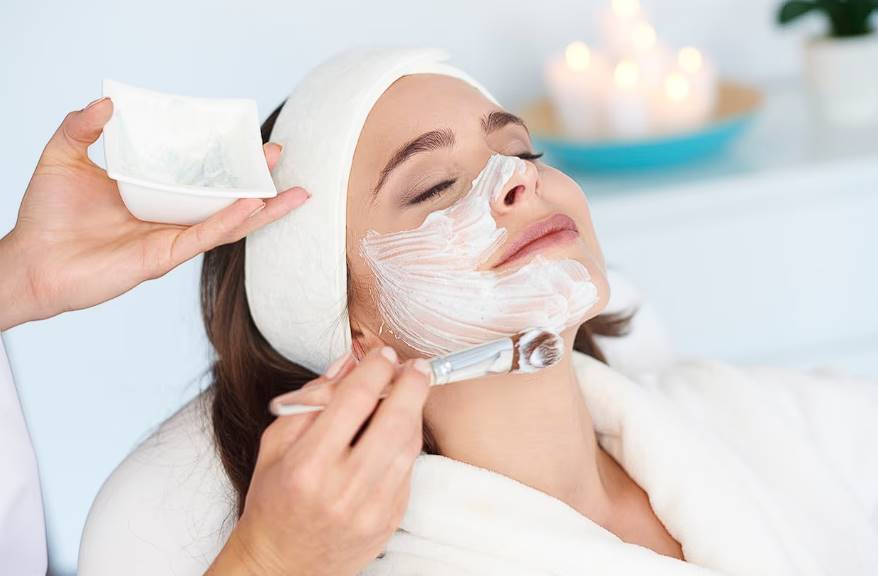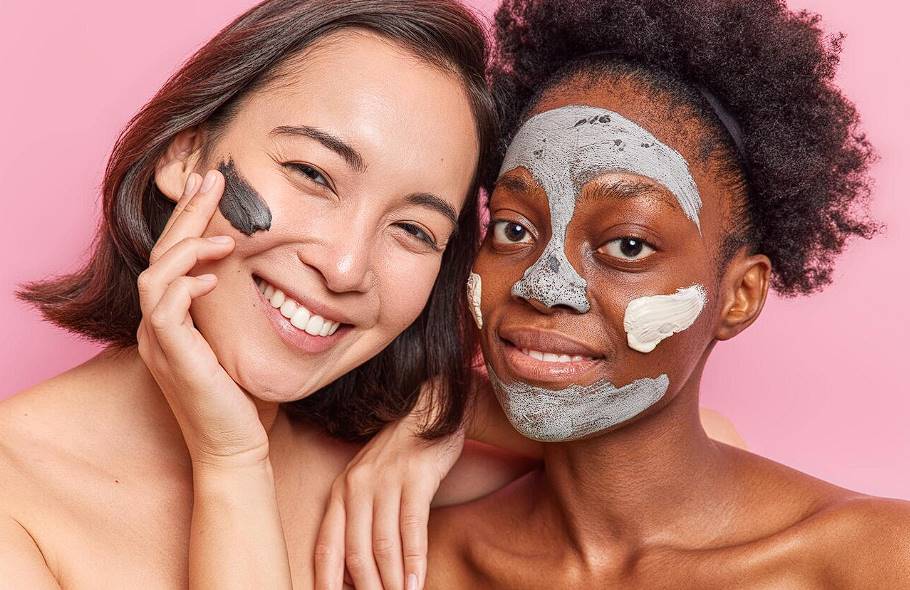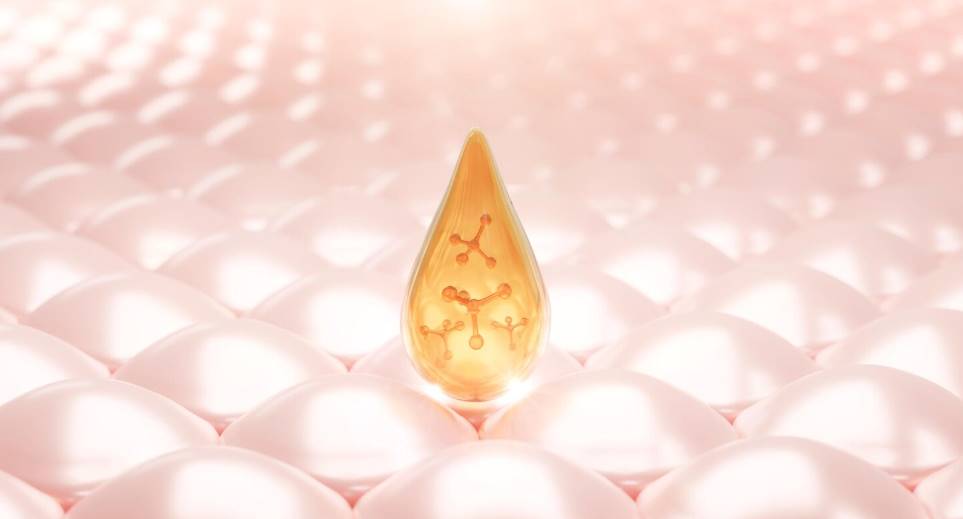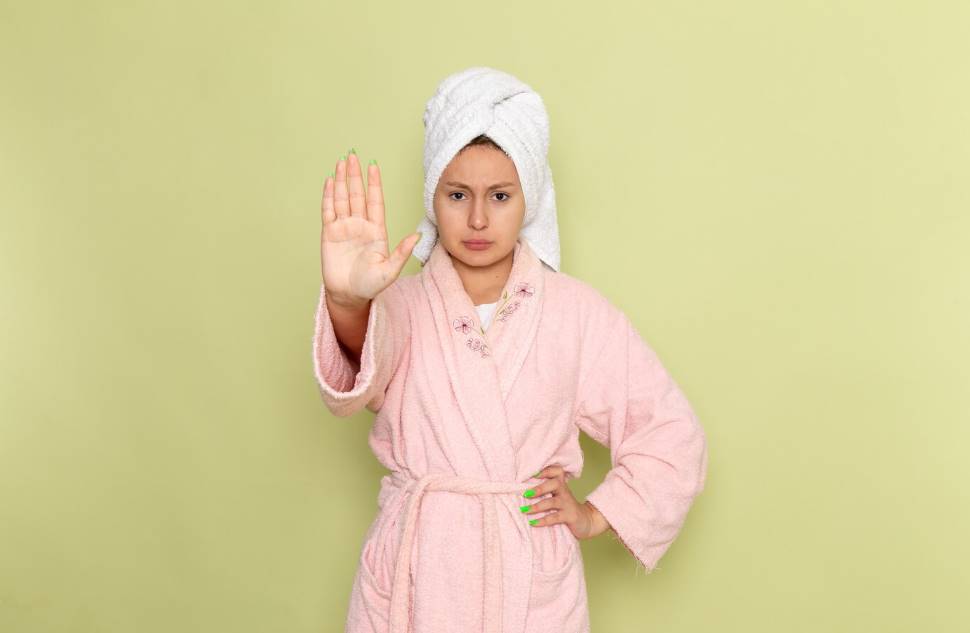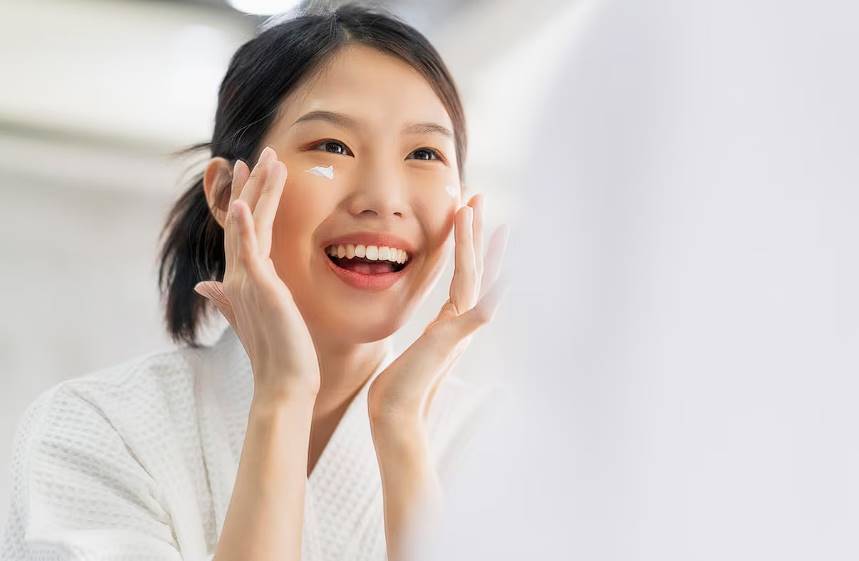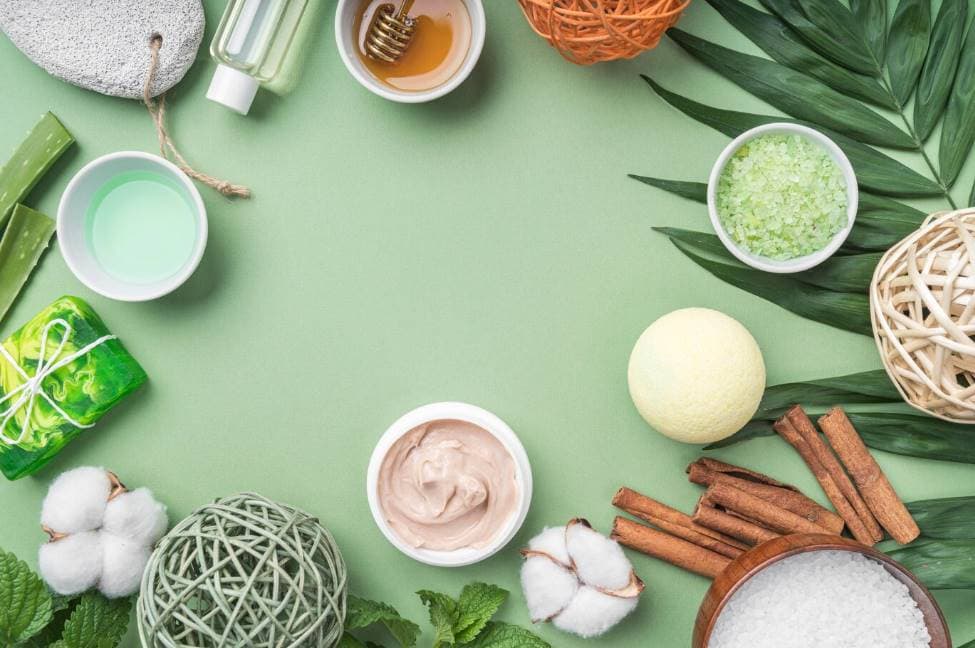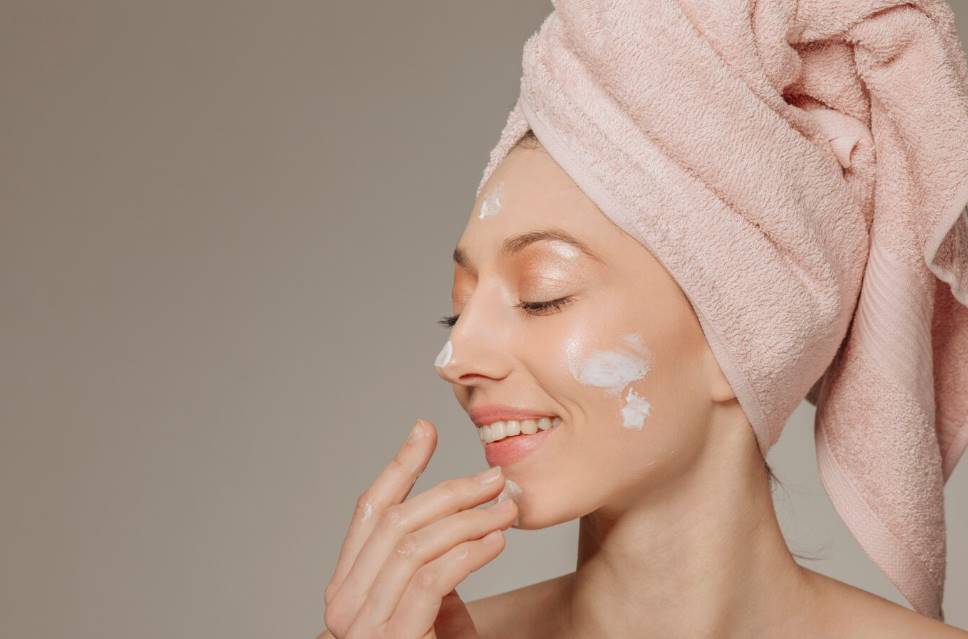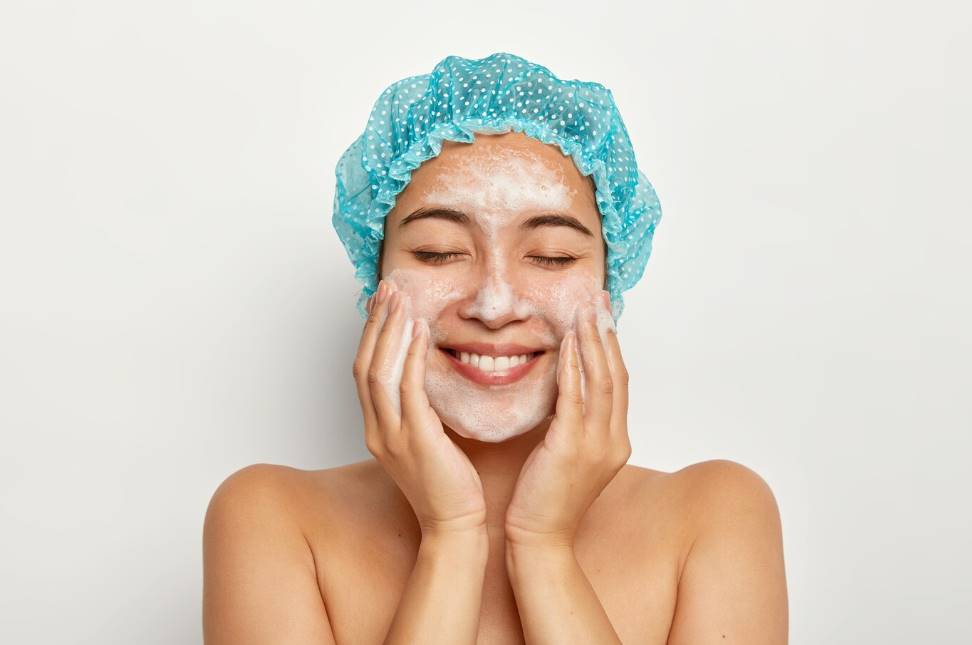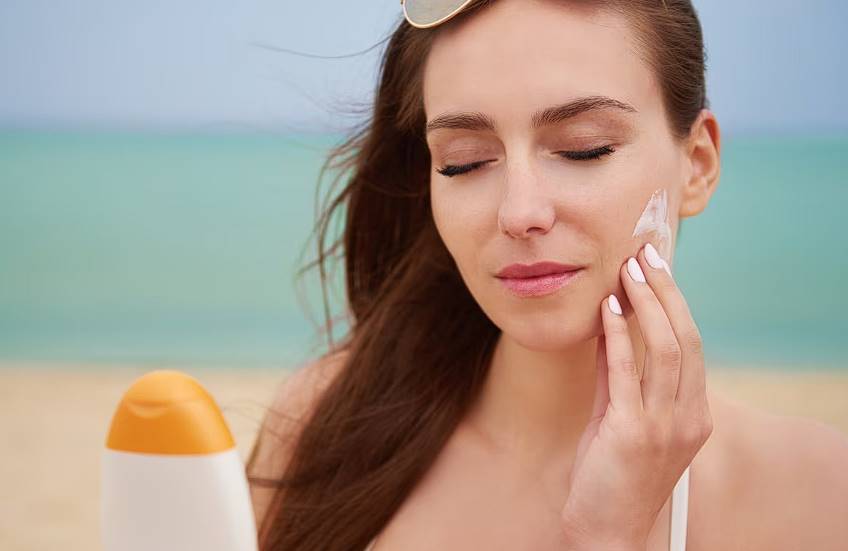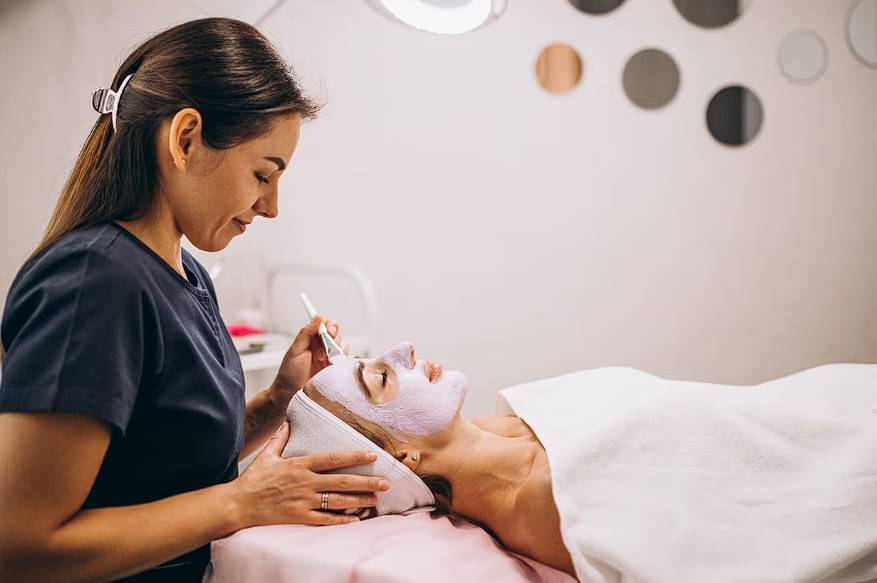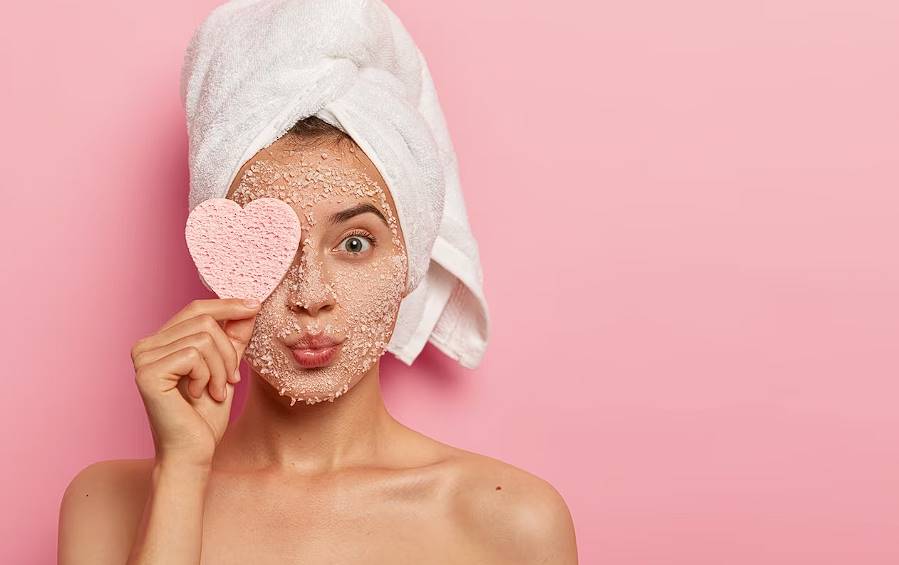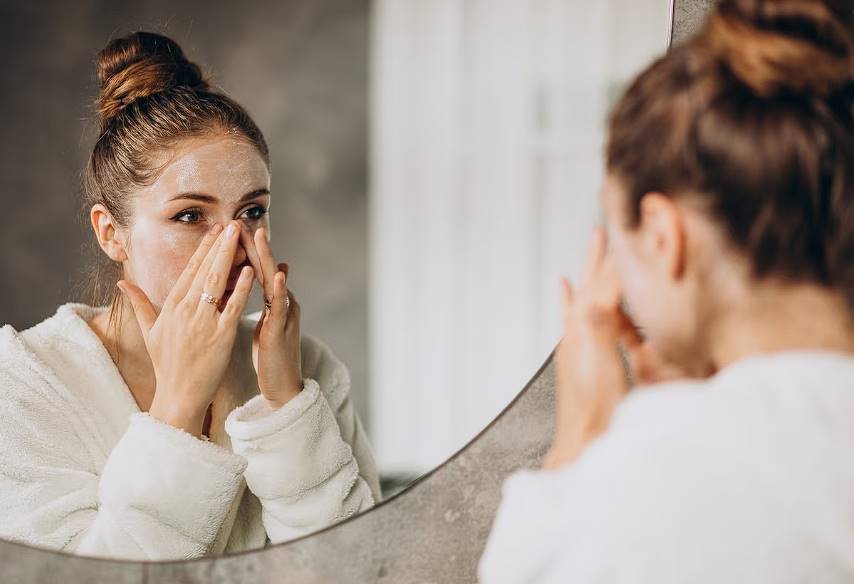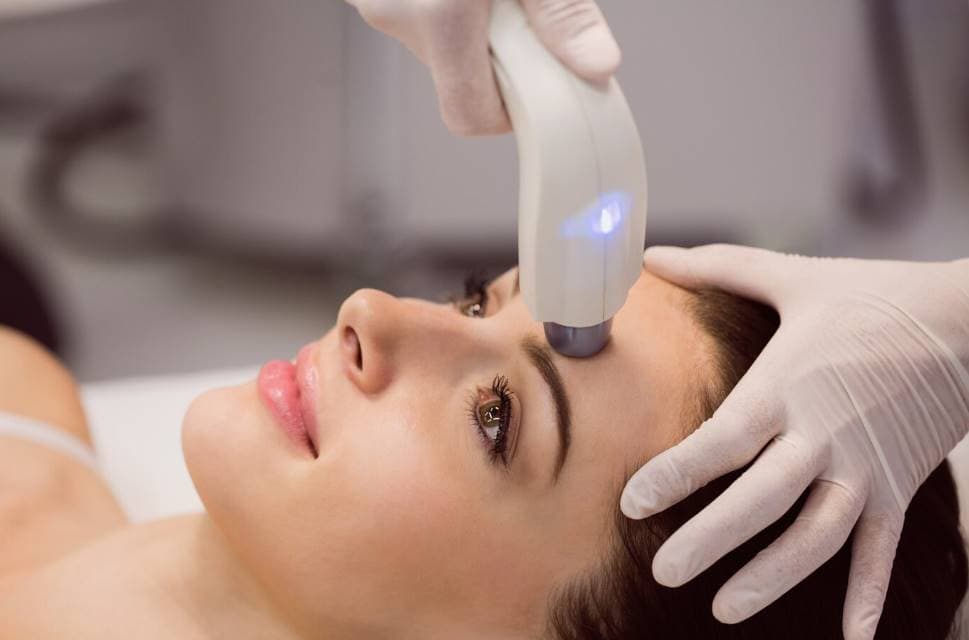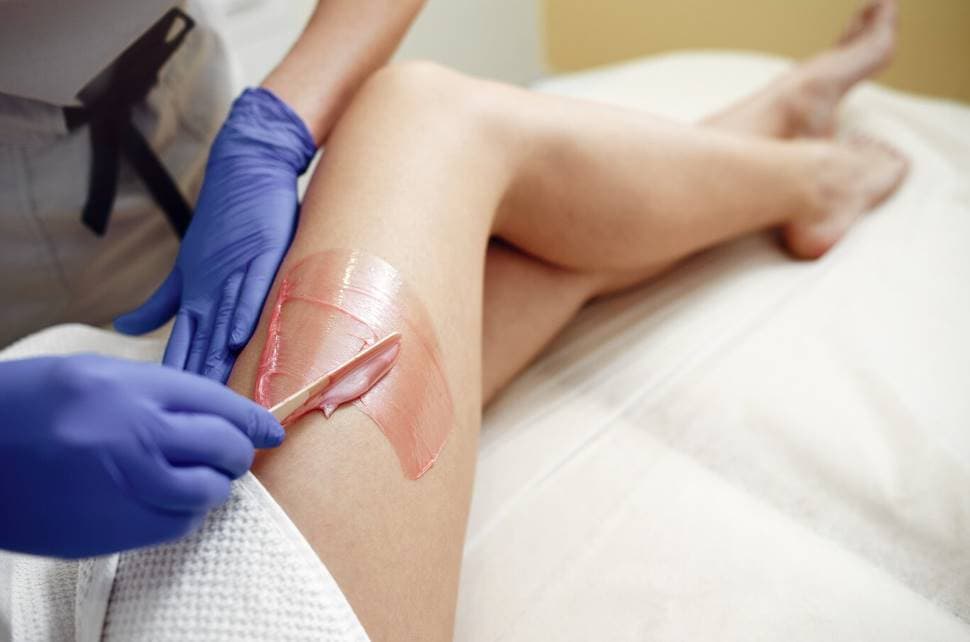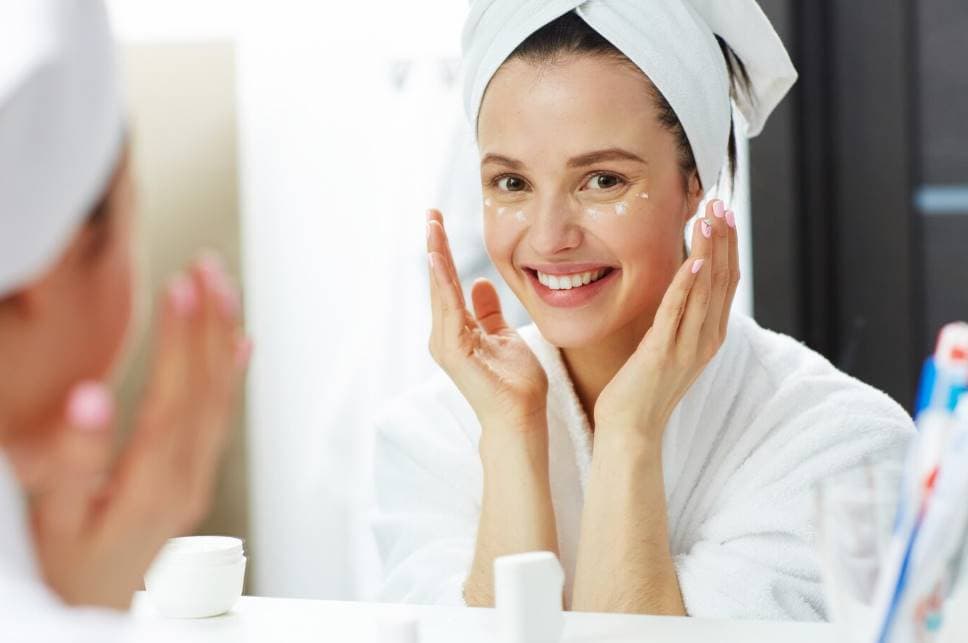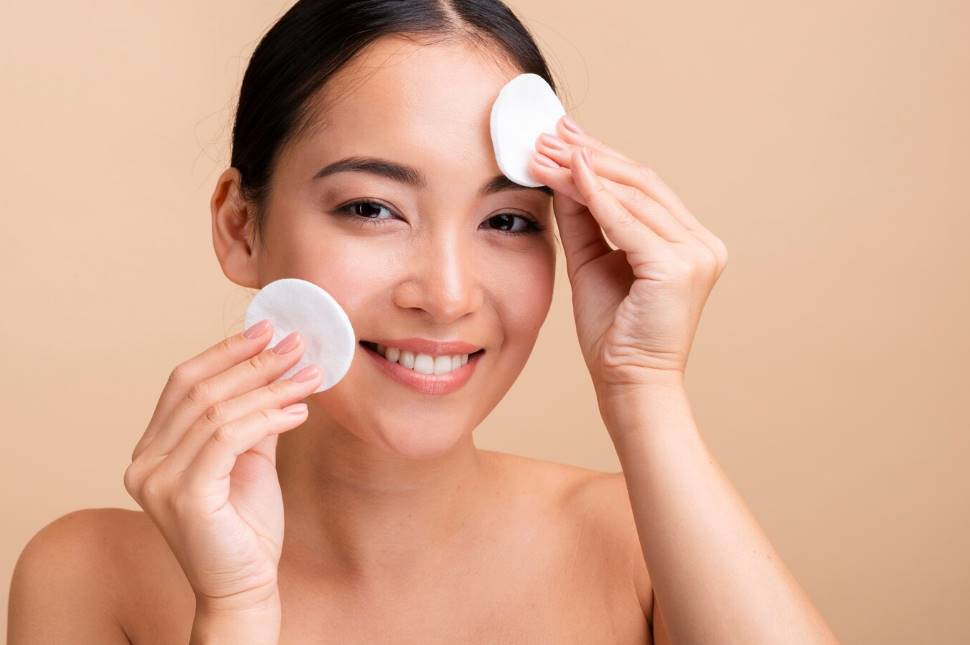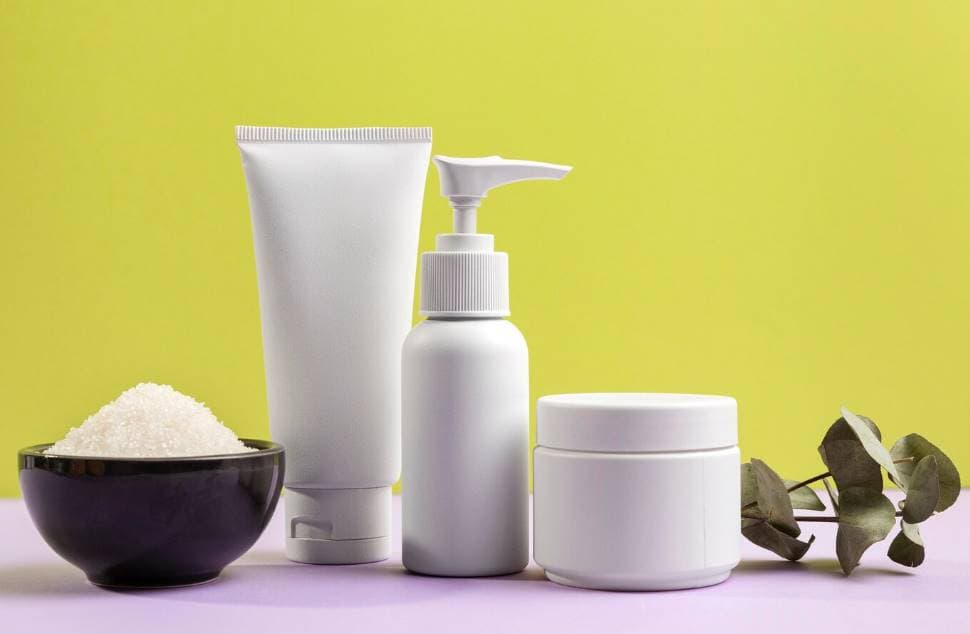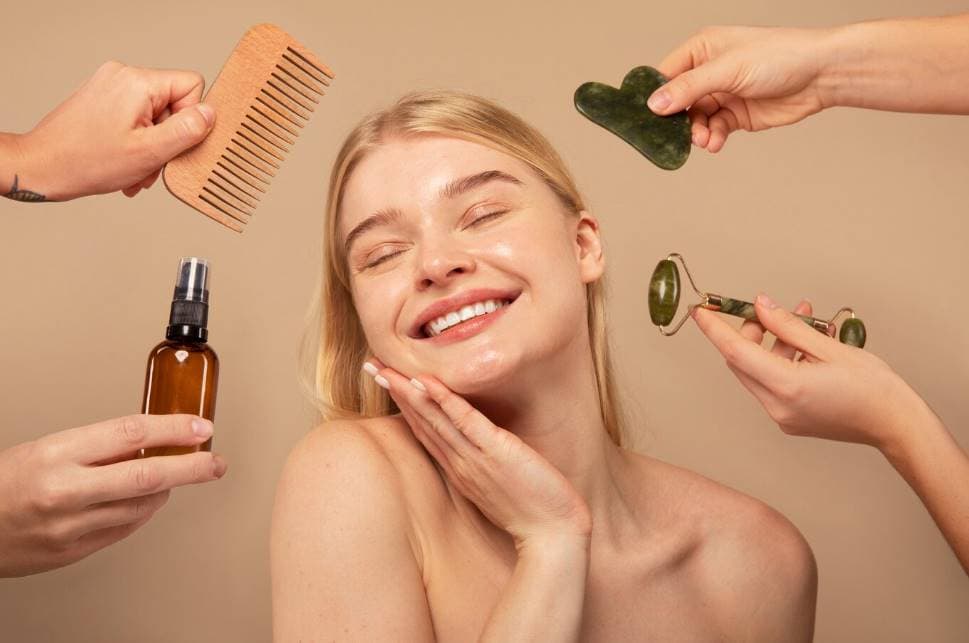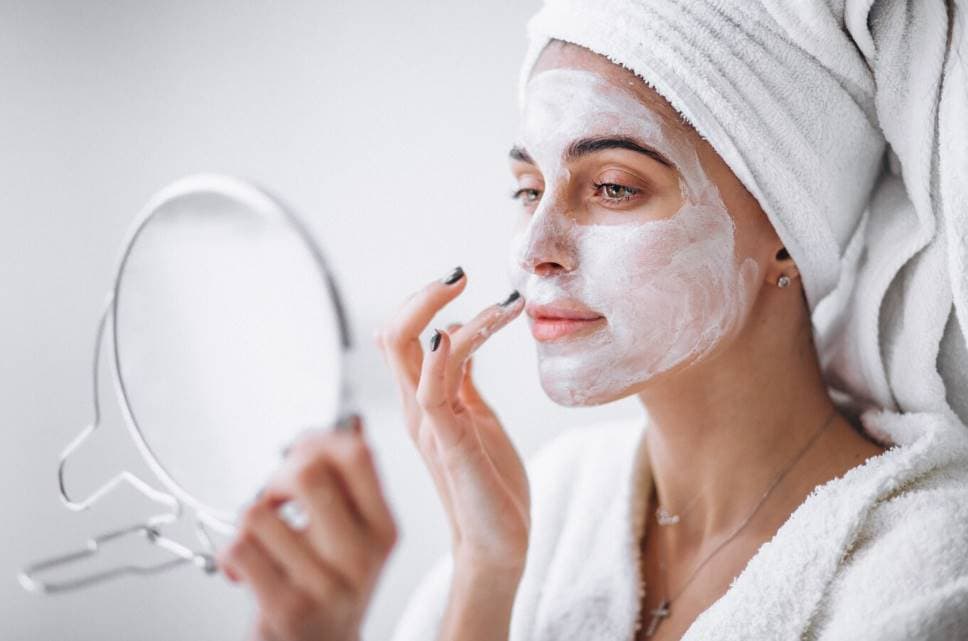Due to its increased sensitivity to environmental elements and skincare products, sensitive skin requires special attention and care.
The ins and outs of caring for sensitive skin are discussed in this article. If you take good care of your sensitive skin, you can avoid irritating and discomforting your skin and still attain a glowing, healthy complexion.
Learning to Deal with Sensitive Skin
What Is Sensitive Skin?
Those with sensitive skin are more likely to experience irritation, redness, and allergic reactions. Some environmental and skincare variables, such as pollution and severe temperatures, might cause it to flare up. Sensitive skin is a common source of pain, tightness, and itching for those who experience it.
Recognising Skin Sensitivity
The key to finding the perfect skincare routine for sensitive skin is realising that you have it. Some of the telltale symptoms of sensitive skin include:
- Flushing and redness occur frequently
- Redness, itching, and stinging
- Reactions of the skin to novel products
- Sensitive to minor changes in the environment
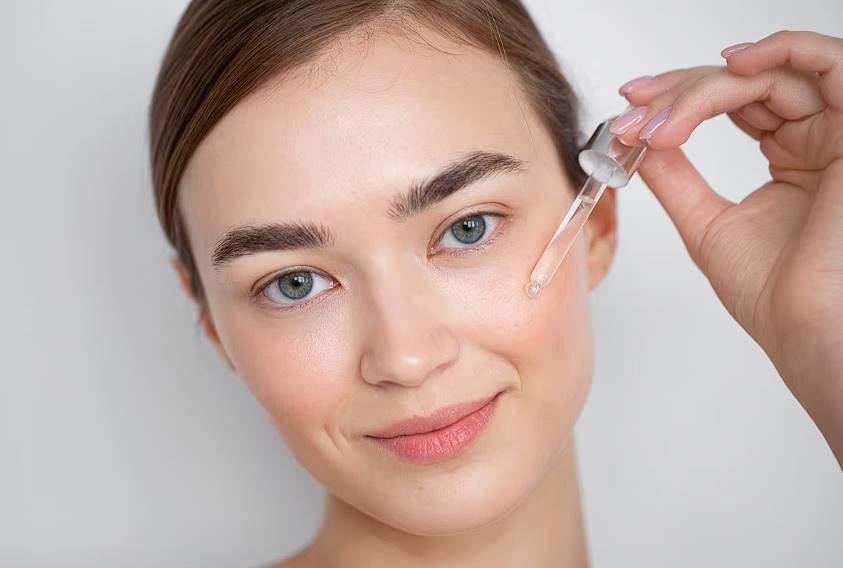
What makes skincare so important for those with sensitive skin?
People often say they experience breakouts, tightness, or burning when using skin care products because they have sensitive skin. Even if you don't have sensitive skin, as identified by a dermatologist, it's still important to know how a product makes your body react.
Having sensitive skin after using a cosmetic product is often the result of an allergic reaction or a chemical that is harmful to the body.
Each Of Us Has A Unique Skin Type
It's human nature to want to adopt the skincare habits of others around you. Despite not following any skin care regimen, some people consistently glow. They got lucky! Because everyone has a unique skin type, you shouldn't try to mimic someone else's skincare routine. Some are fragile and need continual attention, while others are low maintenance. The summer skincare routine for those with dry skin differs from that for those with oily skin.
As the adage goes, one person's food might be another's poison. It's best to leave your skin's appearance up to chance if it requires work to look fantastic. The way you care for your skin is worthwhile in the long run.
Skin Cells Die Daily
Every day, dead, dry skin cells on the surface of your body are replaced by healthy, vibrant new cells that give your skin its youthful look. You lose millions of skin cells daily and don't even realise it.
Exactly what does this imply? Even if your skin is radiant and young today, the natural process of cell turnover means it may seem weary and dull tomorrow. Maintaining a regular skincare regimen may boost your skin's luminosity and keep it gleaming even as it sheds.
It Takes Some Time To Achieve Beautiful Skin.
Exactly why is skin care important? It improves the look and health of your skin. You have to put in the time if you want to see any results. It takes time to save for a major purchase like a new home or automobile. Love and understanding are two things that develop over time. Yes, it does take some time for your skin to start showing signs of youth.
No quick miracle cream or pill will make you look years younger. Maintaining healthy skin requires regular feeding. Consistency is the key to success in any endeavour.
Make a plan to meet your skin's needs and stick to it religiously. Spend some time developing a skincare routine, and you'll be rewarded with skin that looks and feels years younger and more radiant.
Avoidance Is Far Preferable To Treatment.
Taking care of your skin daily will prevent unnecessary expenses and wasted time. Unfortunately, most people today are fighting skin issues like wrinkles, acne, and hyperpigmentation because they did not properly care for their skin while they had the chance.
They have learned their lesson about proper skin care. This is a daily expense for them. Prevention, as the adage goes, is better than treatment. Spending effort on skin care now will pay off in the future.
Having Glowing Skin Is A Certain Way To Boost Your Self-Esteem.
Your self-esteem is directly related to your facial appearance. Confidence levels are higher for a person who looks and feels good. What kind of person you are can be seen on your face. Caring for your skin is a public declaration of yourself, and others' love. Maintaining a regular skincare routine helps ensure that you always look your best.
Care for Sensitive Skin: The Dos and Don'ts
While attaining flawless skin may be unrealistic, achieving your ideal skin tone and texture is not. The following are some musts and must-nots for glowing skin.
Use Sunscreen And Avoid Tanning.
A safe tan does not exist. Tanning is a sign of skin deterioration. Avoid tanning beds and use sunscreen to reduce the skin cancer danger you face.
Protect your face daily using a moisturiser with SPF 30 or higher. Put on a full-body sunscreen at least 30 SPF and reapply it every two hours when you expect to be outside. You can find sunscreen in most stores. Pick one that suits your tastes and is water- and UV-resistant across the spectrum.
Do Put On A Hat, Preferably With A Wide Brim.
Get a hat before you leave the house. The aging effects of sun exposure can be mitigated by protecting your scalp and face from direct sunlight. In this case, a larger brim is preferable.
Protect Yourself From The Sun By Always Dressing Appropriately.
Clothing designed to block UV rays is an even better alternative to sunscreen. It always works the same way and never needs to be reapplied. More fashionable and convenient alternatives have become readily available as they have grown in popularity.
Remember that prolonged exposure to sunlight is one of the leading causes of skin ageing. Protect yourself from the sun with sunscreen, UPF-rated clothing, and a wide-brimmed hat. It's a great way to keep your skin looking fresh and young.
Strive To Improve Your Health
Maintaining a healthy lifestyle has significant benefits for our skin. Your skin's texture and tone benefit from regular exercise, a nutritious diet, and enough water.
For optimal health, medical professionals advise exercising at least 40 minutes daily. For those who despise exercise, even casual strolls are beneficial.
Fresh produce and lean protein are great for fitness. Don't fret; your body's hormones are to blame, not chocolate consumption if you're struggling with acne.
So, a little chocolate is fine, but try to limit yourself. Be sure to get eight glasses of water daily to keep your body functioning properly. Drinking water does not change your skin's appearance but improves your condition significantly.
Be Sure To Clean Your Face.
Day-to-day life causes a buildup of oil and dirt in your pores. Wash your face twice a day is recommended to get rid of the grime and oil. Don't use hot water or wash your face too often; doing so can dry up and irritate your skin.
Apply Lotion On Your Skin!
After cleansing your face, put on a sunscreen moisturiser with at least 30 SPF. This step in skin care is often skipped despite its importance in maintaining smooth, healthy skin. You should also apply lotion to your body.
Stop Smoking
Inhaling carbon monoxide cigarette smoke is known to cause skin dryness and discolouration. That's just one more issue that can arise from smoking. Don't even think about lighting up. The results on your skin will be positive.
Make An Effort To Unwind! (Or, Well, Try Not To Worry Too Much About It)
Hormone levels rise in response to stress, resulting in oilier skin. Problems with the skin, such as rashes, acne, and other irritations, can be triggered by oil.
Don't Put On Too Much Makeup
Makeup application can be tricky because people's skin tones vary. Excessive makeup can cause pores to become clogged regardless of skin type, leading to breakouts, and the chemicals can dry out your skin.
One option is using items that aren't comedogenic and won't clog your pores. Organic or Natural makeup products are easier on your skin because they include fewer chemicals. If you prefer makeup-free, a high-quality moisturiser with at least 30 SPF could do the trick.

Advice on How to Enhance Your Skin's Appearance
The skin is the body's biggest organ and is a barrier to prevent harmful environmental factors from entering the body. However, people need to remember it quite fast. Priorities include careers, education, households, communities, wardrobes, and gardens.
And when that time arrives, you'll be so worn out that you'll neglect your skin's needs. Spending time caring for your skin each day, like you would your teeth, will provide significant benefits. Here are some tried-and-true methods for caring for your skin that will help you look younger for longer.
Take Sunscreen With You
Premature ageing, blemishes, and even some skin disorders can all be traced back to too much time spent in the sun. When going for a walk on the beach or doing any outdoor labour in the sun, it is imperative to use sunscreen.
It would help if you stayed out of the sun during the middle of the day when its ultraviolet radiation is at its strongest. Your skin will thank you if you take precautions against sun damage.
Stay Away From The Booze And The Cigarettes.
You already know that drinking alcohol and smoking cigarettes harms your health. Faintness or open pores, opacity, redness, and deep wrinkles are visible effects on the skin. And remember that alcoholic beverages and cigarette products pose an especially high risk to female health. Furthermore, smokers are more likely to develop lip wrinkles.
Get Some Much-Needed Sleep
Getting enough shut-eye has several aesthetic benefits. Get your timetable in order and make sleep a priority. Sleep is the ultimate beauty secret, as even supermodels would attest. Sleeping enough promotes natural skin regeneration, making you seem refreshed.
Hydrate
The greatest favour you can do for your skin is to drink plenty of water; doing so will speed up the natural ageing process. Care for the face should include external (with effective and practical face reality products) and internal (with plenty of water) measures. Your skin will appreciate it if you hydrate regularly.
Exercise
When you work out, your blood flows more freely, bringing oxygen and nutrients to your skin. Exercising regularly is good for your skin and your body, mood, and overall health.
Provide Nutrients For Your Skin
Good skin nourishment is, without question, crucial to your overall health. Sugar, salt, and fried foods are all bad for your skin and can be eliminated. Increase your intake of hazelnuts, almonds, purple and red fruits, carrots, olive fish, broccoli, oil, and whole grains.
It's also important to get enough vitamin C every day through eating. Vitamin C excretion occurs in the urinary tract. The look of wrinkles and fine lines is diminished thanks to its role in bolstering collagen and suppleness. Because of its exfoliating properties can remove dirt and oil from the skin, even out skin tone, and lessen acne.
Conclusion
Sensitive skin is characterised by heightened sensitivity to environmental factors and hygiene products. It is essential to identify skin sensitivity and develop an appropriate hygiene regimen for sensitive skin.
Common signs of sensitive skin are flushing, a reddened complexion, and allergic reactions. It is essential to comprehend how a product interacts with the body in order to prevent allergic reactions or the release of harmful substances.
Each individual has a distinct skin type; therefore, it is essential to avoid imitating the hygiene routines of others. Maintaining a regular skincare regimen can enhance luminosity and keep the skin youthful by preventing the daily loss of skin cells. Maintaining healthy epidermis requires time and effort.
Avoidance is not the optimal treatment for sensitive skin. Proper skin care is necessary in order to avoid wasting money and effort. Prevention is preferable to treatment, and investing in skin care now will yield future benefits.
Caring for one's skin is a public declaration of one's affection for oneself and others. Use sunscreen and avoid tanning beds to attain a flawless complexion. Protect your face daily with a moisturiser that contains SPF 30 or higher, and wear a wide-brimmed hat to shield your hairline and face from direct sunlight.
As prolonged exposure to UV rays is a primary cause of skin ageing, it is important to protect your skin from the sun by wearing clothing designed to block UV rays. Maintain a healthy lifestyle, including regular exercise, a nutritious diet, and adequate hydration, in order to keep your complexion looking young and vibrant.
For fitness, walk or exercise for at least 40 minutes per day and consume fresh produce and lean protein. Daily consumption of eight glasses of water significantly enhances skin condition.
Use a sunscreen with at least 30 SPF and wash your face twice per day to remove dirt and sebum. Quit smoking, as it can cause dryness and discoloration of the epidermis. Relax by avoiding tension, as stress causes hormone levels to rise, resulting in oilier skin. Excessive cosmetics can cause pores to become clogged and breakouts to occur.
To improve the appearance of your skin, prioritise your health by using sunscreen, avoiding alcohol and cigarettes, getting enough sleep, routinely hydrating, exercising, and supplementing your skin with nutrients. Replace sugar, sodium, and fried foods with hazelnuts, almonds, purple and scarlet fruits, carrots, olive fish, broccoli, oil, and whole grains.
In addition to nutrient-dense foods, consume an adequate amount of vitamin C each day, which helps reduce wrinkles and fine lines, enhances skin tone, and diminishes acne. By adhering to these guidelines, you can maintain a vibrant and healthy appearance.
Content Summary
- Because it is so sensitive to both the natural elements of its environment and the ingredients in skincare products, sensitive skin demands extra TLC.
- A healthy complexion can be achieved by taking proper care of sensitive skin, which will also avoid irritation and discomfort.
- It is essential to have a thorough understanding of how to properly care for sensitive skin.
- It is crucial to be able to recognise symptoms like as redness, flushing, and itching, as well as reactions to new products.
- Even for people who do not have clinically sensitive skin, it is necessary to practise proper skincare in order to comprehend how products react with their skin.
- Problems with sensitive skin caused by the use of cosmetics might be caused by allergic reactions or by toxic ingredients.
- Every person has a different skin type, which is why individualised care is necessary.
- Because everyone's skin is different, trying to follow the practises of others might not be effective.
- To keep one's skin in good health and maintain regular cell turnover, one must practise constant skin care.
- It takes some time for a proper skincare routine to start showing substantial results.
- Maintaining a healthy routine over time is the only way to get younger-looking skin; there is no quick fix.
- When it comes to the long-term health of your skin, preventative skincare is preferable to therapy.
- A healthy glow can do wonders for one's self-esteem and confidence.
- There is a considerable correlation between one's outward look and their level of self-esteem.
- Dos and don'ts are involved in understanding how to properly care for sensitive skin.
- Use of sunscreen and abstaining from tanning are both essential for maintaining healthy skin.
- In addition, protecting your skin from the sun by donning caps and clothing can be helpful.
- The benefits of a healthy lifestyle for the skin include exercise, a good diet, and adequate hydration.
- The texture and tone of the skin can be improved with consistent exercise and a balanced diet.
- Regular facial cleansing prevents the development of debris and oil on the face.
- It is essential to use a sunscreen moisturiser with at least an SPF 30 rating.
- Avoid smoking since it might cause your skin to become dry and discoloured.
- The management of stress is absolutely necessary in order to avoid oil-induced skin problems.
- Choose products that are not comedogenic if you wear a lot of makeup because it might block your pores and lead to acne.
- Because it has less chemicals, natural makeup is less harsh on the skin.
- Putting regular skincare routines first is just as vital as prioritising other daily tasks in life.
- Protecting your skin from sun damage and premature ageing using sunscreen is really necessary.
- Consuming alcohol and smoking both have negative impacts on the health of the skin.
- A look of renewed vitality and natural skin renewal are also benefits of getting enough sleep.
- Consuming adequate amounts of water on a consistent basis promotes good skin from the inside out.
- Participating in regular physical activity can help increase blood circulation and supply vital nutrients to the skin.
- The health of the skin can be improved by eating foods that are high in nutrients, such as nuts, fruits, vegetables, and seafood.
- Production of collagen and maintenance of skin tone both require adequate amounts of vitamin C.
- Vitamin C's exfoliating abilities contribute to the reduction of acne and the maintenance of an even skin tone.
Frequently Asked Questions
Some natural ingredients can be gentle, but not all. Patch-test new ingredients and avoid common irritants like citrus oils or strong essential oils.
Yes, but choose products with mild ingredients like peptides or hyaluronic acid. Avoid harsh retinoids unless advised by a dermatologist.
Patch-test new products on a small area of skin first. Introduce one new product at a time, and wait a week before adding another to observe any reactions.
Hot water can strip the skin's natural oils and worsen sensitivity. Stick to lukewarm water for cleansing and bathing.
Yes, factors like stress, diet, and sleep can impact skin sensitivity. Stay hydrated, manage stress, eat a balanced diet, and get enough sleep for overall skin health.
